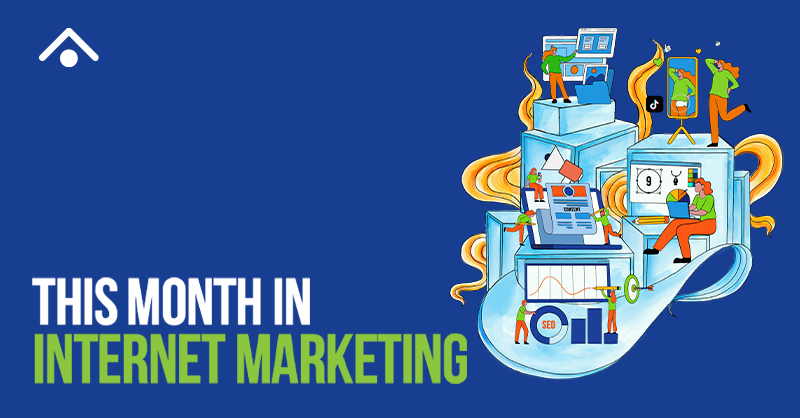 Since Google's "Panda" algorithm update launched at the end of February, there has been considerable buzz and discussion about what it means for SEO. Many websites have seen a negative impact on their rankings and their visitor traffic, while others have benefited from the change. Now that Google has evaluated the success of the update and is planning to build upon it further, it seems that these changes are here to stay and website owners and internet marketing professionals alike must adapt.
Since Google's "Panda" algorithm update launched at the end of February, there has been considerable buzz and discussion about what it means for SEO. Many websites have seen a negative impact on their rankings and their visitor traffic, while others have benefited from the change. Now that Google has evaluated the success of the update and is planning to build upon it further, it seems that these changes are here to stay and website owners and internet marketing professionals alike must adapt.
So why the change and what does it mean?
Gaming Google - The Evolution of the Algorithm
Google has always had one aim for their search engine; to deliver high quality results to their users. At the core of that goal is their search algorithm, which must deliver quality results and stay ahead of the curve by filtering out every trick and shortcut that websites might employ to artificially boost rankings. Webmasters have always tried to figure out how Google's algorithm works, and its algorithm has in turn evolved in constant competition with every technique webmasters use to game it for higher rankings. It's all very Darwinian and, like evolution in the natural world, we can expect to see the game continue indefinitely. This will not be the final cut of Google's algorithm; it's only the latest mutation and there will be many more to follow. Despite all the talk about the Panda algorithm, except for its increased emphasis on quality and the paradigm shift in how that quality is calculated, this latest update is no different than every one that has preceded it since 1998. Google’s aim is and has always been all about delivering quality search engine results via a robust algorithm.
But how does Google attempt to calculate the quality of a website and how has this changed with the Panda update? In developing the new algorithm, Google's team came up with ways that it could attempt to answer a number of questions. These common sense, plain English questions, the foundation of the new algorithm, have been published by Google and are available for anyone to see. It's a long list, but these fundamental questions effectively boil down to a few key considerations that capture the essence of what the algorithm is intended to determine:
- Is your site's content highly relevant and informative?
- Is its content substantially unique/original?
- Is the site worth recommending to others?
- Is the site trustworthy and/or an authority?
Answering these questions about your own site honestly and objectively will offer pretty good insight into whether your site's rankings on Google are likely to benefit from the new algorithm, now and in the future. Asking those same questions another way may help in answering them honestly and objectively:
- Is your site's content highly relevant and informative, or does it have less information than similar, competing websites?
- Is the content substantially unique/original, or does it use content that has been copied from or published elsewhere online?
- Is the site worth recommending and, if so, has it been recommended in the form of social bookmarking, mentions on social networks, blogs, directories and so on?
- Is the site trustworthy and/or an authority, or is it new to the web and/or not linked to as a credible resource from other related websites?
If you can answer "yes" to most of these questions, then your site has probably not been negatively impacted by Google's new algorithm. If not, then it's important to rethink your website's marketing strategy to adapt to the change.
Demystifying Panda
The latest iteration of the Google search algorithm has left a lot of people scratching their heads trying first to understand the change in all of its nuances and complexities and then trying to figure out what to do about it to get or keep their website at the top of Google's search engine results.
The bad news is that very few people even at Google itself are privy to the algebraic alchemy that comprises the new search algorithm. Even if it were possible to crunch the numbers, crack the mystery and game the new algorithm to reliably put your site at the top, what happens when the next update comes down the pipe from Google?
The good news is that you really only have to understand one thing in order to adapt - that Google's algorithms, this one and all that have come before it, are intended to deliver high quality results that will keep people turning to them when they're trying to find something online.
So, instead of trying to dissect how Panda works and how to artificially boost website rankings, now more than ever it has become necessary and most efficient to simply avoid the temptation of finding shortcuts and start focusing on making sure that your site offers what Google is trying to deliver to its users - high quality, original and well-presented content that users will appreciate and recommend. Do that, and Google will "appreciate and recommend" your site too, by putting it at the top of its search engine results.
Certainly, it's still absolutely necessary to properly implement on-page optimization techniques, with the emphasis on "properly" (meaning strategically and judiciously), but the focus must be increasingly on quality, and that more than anything is worth bearing in mind, now more than ever.
The best way to demystify the Panda algorithm update is to forget about it entirely, and instead be sure that your website meets Google's Webmaster Guidelines. While these quality guidelines haven't changed all that much over recent years, Panda is the closest that Google has come to developing an algorithm that weeds-out sites which fail to meet these common-sense requirements.
And to answer the real question that's on everyone's mind; why is it called "Panda?" It's simply the name of the Google guru who came up with it, says Matt Cutts.







on
I got affected by the Google Panda update personally aswell…
I’ve been looking for ways around the Google Panda update and I conducted alot of testing on my own blogs.
Here are several key points to think about:
1) lower the bouncerate on your sites
2) get rid of/nofollow/noindex thin and low quality webpages
3) boost Click Through Rate in the serps (E.g implement crazy call to actions and things inside your page titles)
4) give more increased value on your site (increase visitors onpage time)
5) interlink your web site with optimized anchor texts
6) use a privacy policy, about us, contact us, google maps location, SSL, address/phone number, images, subtiles, paragraphs, bulletpoints etc etc (virtually all “achievable” added quality factors you can think of)
7) Obtain additional quality links with effective anchor text variation.
Link-building must be done in a very diverse and steady manner.
Another thing, I’m a beta tester of LinkALoha at the moment and im seeing GREAT results. I think they are going to open up a couple new spots shortly, you guys should check it out. Those guys are great
on
Chris, I did what you said. Just opened up Google's Webmaster guidelines page and spent some time reading it. It was useful.
on
Hi Rommel,
I’m glad you found it helpful!
Unique, high quality and well presented content is key. It always has been, but Google’s new algorithm makes it all the more important. If you create an impressive website with engaging content that people will recommend you should do well. It makes perfect sense, since there’s little point in attempting to gain high search engine rankings if your site won’t impress visitors any longer than it takes them to hit their browser’s “back” button.
Good Luck and let us know how it goes!
Chris.